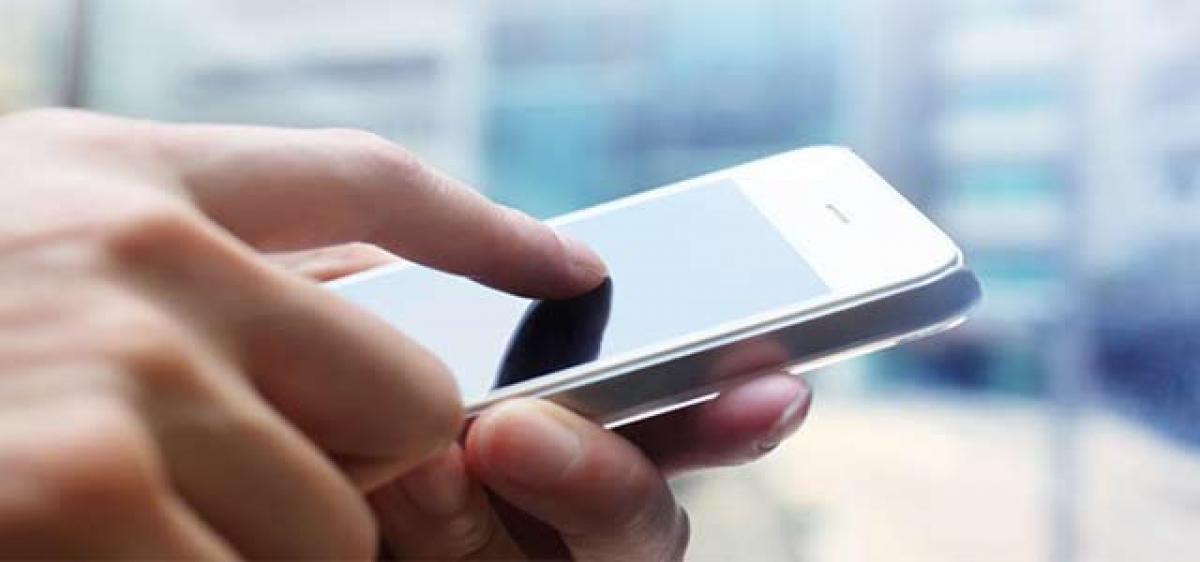Live
- MyVoice: Views of our readers 24th November 2024
- Meet four trailblazing women striving tirelessly to protect the planet
- Konkona Sen Sharma goes international, to star opposite Javier Bardem’s brother Carlos in ‘Mis(s)chief’
- Prime Minister Narendra Modi to Visit Visakhapatnam on November 29
- People in my life inspire my fictional characters: Sugandha Pallan
- Japanese girl group, XG to make Coachella debut in April next year
- Are strict laws needed to ensure MLAs attend Assembly sessions?
- Do you support caste census? which one will you prefer caste census or skill census?
- Maha people gave big victory to Mahayuti led by BJP: Kishan
- Don’t rush to cover up harvested grain
Just In

The fast expanding telecom penetrations certainly come in handy for a transition to digital economy. As per the 2011 Census, more households had mobile phones than toilets in India.
The fast expanding telecom penetrations certainly come in handy for a transition to digital economy. As per the 2011 Census, more households had mobile phones than toilets in India.
As many as 53 per cent of households had mobile phones. Fresh surveys indicate that this has shot up to 88 per cent. India has better telecom connectivity than even water connectivity.
This gives ammunition to those who are advocating an immediate transition to digital economy. But, this is only one part of the statistics. Access to smart phones is still limited, making it difficult to conduct mobile banking transactions.
Notwithstanding the purported benefits of a cashless economy, the current reality is that the Indian monetary system has a long way to go to realise this dream. India has a large retail trade primarily operated through cash alone.
Lack of relevant infrastructure is the main reason, the though government is exhorting a change in the mindset.
According to reliable estimates, only 1.4 million among an estimated 15 million traders have Point of Sale (PoS) terminals in India. This is far less as compared to even emerging economies.
There are advantages and concerns over India’s transition to cashless economy. Estimates also indicate that banks spend as much as Rs 25,000 crore towards cost of operations on cash transactions.
Besides, the Reserve bank of India (RBI) incurs an annual expenditure of Rs 17,000 crore on currency printing and distribution. Thus digital payments would entail massive savings.
But, the cost of maintaining digital banking infrastructure and the cyber security issues still persist. Even SBI and ICICI could not insulate themselves from cyber attacks.
The challenges from cyber breach also deter a change in the mindset in favour of cashless economy.
Besides access to banking is still a privilege for many Indians. The RBI data itself suggests that 600 million Indians living in rural and rurban areas do not have easy access to banking.
As high as 300 million do not have even bank accounts. Millions of Indians do not even possess proper documents to open an account.
Banking transactions, especially digital banking, are often hampered by poor power and internet connectivity. Costs of intermediation still discourage many from digital banking.
Indian market is dominated by small businesses for which cost of digital transactions is certainly prohibitive. The tele, internet connectivity, banking penetration etc. have a high degree of urban bias. Women, old and uneducated lag behind in accessing this connectivity.
Financial inclusion and cashless economy are interlinked. But, the motto point is which should precede the other. A topsy-turvy vision of this relationship led to withdrawal of too much cash in too short period through the present paradigm of demonetisation.
India has cash-to-GDP ratio of 12 per cent .The total daily banking transactions in India account for a whopping 2.7 lakh crore of which 80 per cent is in cash only.
This poses a challenge and a necessity for transition to cashless economy. The challenge is to create an infrastructure for financial inclusion and digital payments to suck out such a massive liquidity from the economy.

© 2024 Hyderabad Media House Limited/The Hans India. All rights reserved. Powered by hocalwire.com







